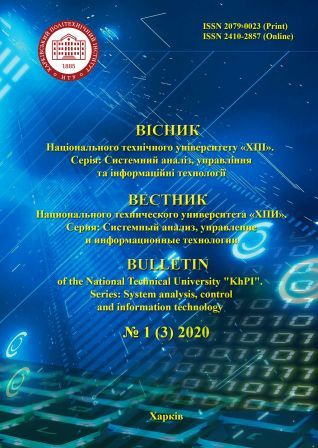ANALYSIS OF DEVSECOPS METHODOLOGY IN SOFTWARE DEVELOPMENT PROCESSES
DOI:
https://doi.org/10.20998/2079-0023.2020.01.12Keywords:
DevSecOps, Application security, Infrastructure security, SDLC, BSIMM, OpenSAMMAbstract
The subject of this research is the software development and protection methodology within DevSecOps. This methodology has changed the approach to ensuring security from reactive to proactive, and also emphasizes the importance of security at all levels of the organization. DevSecOps means providing security in application development from the earliest stages to the very end, and also includes automating some security gateways to prevent DevOps from slowing down the workflow. It is necessary to maintain short and frequently repeated cycles of software product development, as well as integrate security measures. Choosing the right tools for continuous security integration can help achieve these goals. Modern automation tools have helped organizations implement more flexible development methods, and also played a role in the development of new security measures. Effective protection of DevOps requires not only new tools, but also changes in the organization of DevOps processes in order to quickly integrate the work of security teams with other specialists, which will improve the quality of the product. The article is devoted to a detailed analysis of modern approaches and methodologies for systematizing software development and protection, including SDLC, BSIMM and OpenSAMM. The purpose of the work is the classification of approaches to the construction of DevSecOps processes, as well as the consideration of systematization methodologies for existing software protection tools that ensure the interaction of a development team and information protection specialists within one development life cycle. The following tasks are solved in the article: consideration and analysis of DevSecOps process construction approaches and consideration of systematization methodologies for software protection tools. The following results were obtained: the necessary components for the construction of DevSecOps processes are analyzed. Conclusions: the analysis allows us to classify the process of developing and protecting software using the DevSecOps methodology.References
ITFB. URL: https://itfb.com.ua/chto-takoe-devsecops (access date: 2.11.2019).
System-Admins. URL: https://system-admins.ru/razrabotkazashhishhennyx-prilozhenij-s-pomoshhyu-devsecops (access date: 4.11.2019).
Antimalware. URL: https://www.antimalware.ru/analytics/Technology_Analysis/what-is-devsecopsdeveloping-more-secure-applications#part5 (access date: 2.11.2019).
Newcontext. URL: https://www.newcontext.com/what-is-devsecops (access date: 2.11.2019).
Forcepoint. URL: https://www.forcepoint.com/cyber-edu/endpointsecurity (access date: 10.11.2019).
Habr. URL: https://habr.com/ru/company/nix/blog/271575 (access date: 12.11.2019).
IGI-Global. URL: https://www.igi-global.com/chapter/managingcompliance-with-an-information-security-managementstandard/112547 (access date: 15.11.2019).
Secureworks. URL: https://www.secureworks.com/blog/cybersecurity-vs-network-security-vs-information-security (access date: 4.11.2019).
Microsoft. URL: https://docs.microsoft.com/en-us/previousversions/ms995349(v=msdn.10)?redirectedfrom=MSDN (access date: 20.11.2019).
BSIMM. URL: https://www.bsimm.com/about.html (access date: 23.11.2019).
Synopsys. URL: https://www.synopsys.com/software-integrity/resources/knowledge-database/what-is-bsimm.html (access date: (20.11.2019).
Habr. URL: https://habr.com/ru/company/oleg-bunin/blog/448488 (access date: 20.11.2019).
OpenSAMM. URL: https://opensamm.org/downloads/SAMM-1.0- en_US.pdf (access date: 20.11.2019).
Hack2Secure. URL: https://www.hack2secure.com/blogs/summarizing-open-software-assurance-maturity-model-opensammrequirements (access date: 21.11.2019).
DevSecOps Whitepaper. URL: https://www.devseccon.com/wpcontent/uploads/2017/07/DevSecOps-whitepaper.pdf (access date: 23.11.2019).
Downloads
How to Cite
Issue
Section
License
Copyright (c) 2020 Bulletin of National Technical University "KhPI". Series: System Analysis, Control and Information TechnologiesAuthors who publish with this journal agree to the following terms:
- Authors retain copyright and grant the journal right of first publication with the work simultaneously licensed under a Creative Commons Attribution License that allows others to share the work with an acknowledgement of the work's authorship and initial publication in this journal.
- Authors are able to enter into separate, additional contractual arrangements for the non-exclusive distribution of the journal's published version of the work (e.g., post it to an institutional repository or publish it in a book), with an acknowledgement of its initial publication in this journal.
- Authors are permitted and encouraged to post their work online (e.g., in institutional repositories or on their website) prior to and during the submission process, as it can lead to productive exchanges, as well as earlier and greater citation of published work (See The Effect of Open Access).


